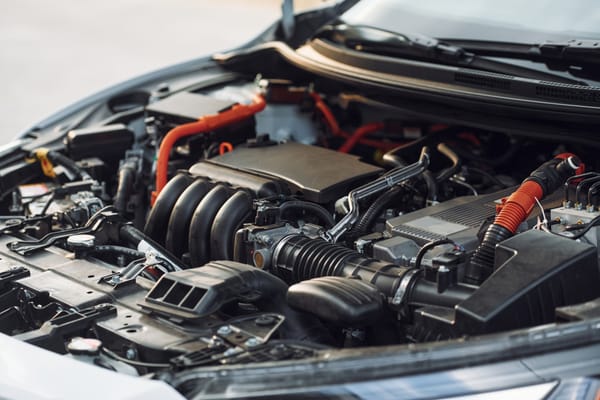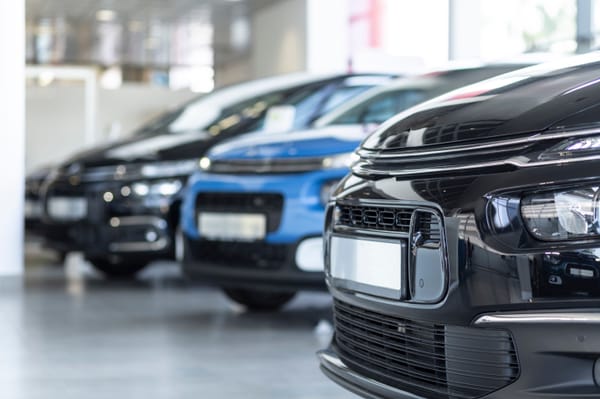What They Don’t Tell You About Financing a Locally Used Car

Say you are now ready to buy a car. You're tired of the morning matatu rush. You've dreamt of weekend road trips – and you got some cash, but not enough of it.
So, you decide to finance a locally used car. It seems like the perfect solution: a middle ground between a brand-new vehicle's price tag and the uncertainty of an older, cash-only purchase.
But hold on. The path to car ownership is littered with fine print and hidden costs that the glossy brochures and eager salesmen don't always highlight. Financing a used car is a smart move, but only if you go in with your eyes wide open.
Here’s what they don’t tell you.
1: Yes, You Can Finance That 10-Year-Old Vitz!
Forget what you've heard. That rigid "car must be under 8 years" rule isn't the whole story. It mostly applies to financing imported cars.
For locally used cars, the game is different. Some financiers will happily fund a car as old as 10 years or more.
What’s the catch? The car must be in excellent condition. Its value is more important than its age.
Why the Shift?
- Condition is King: A well-maintained 2010 Toyota Fielder is a better bet than a poorly-kept 2017 model. Financiers know this.
- Proven Track Record: These cars have been on Kenyan roads. They have a known history and predictable maintenance needs.
- Value Retention: Certain models hold their value incredibly well. Think Toyotas, Subarus, and some Hondas. That’s a safe bet for a lender.
So, that clean Demio or solid NZE you've been eyeing? It might just qualify. This opens up a world of affordable options.
2: Understanding the Bank's Magic Number: "Forced Sale Value"
When you apply for a loan, you'll hear this term. "Forced Sale Value" or FSV. It sounds serious, and it is.
FSV is not the price you see on the windscreen. It’s the rock-bottom price the bank expects to get if they have to sell your car fast. Like, auction-level fast.
Think of it as the "in case of emergency, break glass" price. It’s their safety net mambo yakienda mrama.
How FSV Affects Your Loan
- A professional valuer determines the car's Market Value and its Forced Sale Value.
- The FSV is usually lower, typically around 70-80% of the market price.
- The bank will finance a percentage of the FSV, not the market price.
Let's say the car you want has a market value of Ksh. 800,000. The valuer might put its FSV at Ksh. 640,000 (80% of market value). If the bank offers 80% financing, they will give you 80% of Ksh. 640,000, which is Ksh. 512,000. Not 80% of Ksh. 800,000.
This is a crucial detail. It determines the minimum deposit you must pay.
3: The Financier Food Chain: Where to Get Your Money
Not all lenders are created equal. They exist in tiers, from the strictest to the most flexible. As you go down the list, the hoops you jump through get fewer, but the cost of the loan gets higher.
Tier 1: The Big Boys - Commercial Banks
These are your Equitys, KCBs, Absas, Stancharts, etc.. They are the top of the food chain. They offer the best interest rates.
But wueh, some of their requirements can be a bit tough if you don’t have a good credit history.
- Eligibility: You need a permanent job or a consistent stream of income. Your payslip must look like it hits the gym. They want to see 6-12 months of clean bank statements.
- CRB Score: Your Credit Reference Bureau (CRB) score needs to be positive. A negative CRB rating makes you a credit risk and makes grounds for you to be disqualified.
- Pros: Lower interest rates, longer repayment periods.
- Cons: Very strict, slow approval process.
Banks are great if you qualify. If not, the struggle is real. But don't give up.
Tier 2: The Flexible Cousins - Microfinance Banks (MFBs)
Think of banks like Faulu or Rafiki. They are regulated by the Central Bank of Kenya just like commercial banks. But they are a bit more understanding.
They cater to small business owners and those with less formal income streams.
- Eligibility: They might consider M-Pesa statements alongside bank statements. They understand the hustle.
- CRB Score: They are more forgiving of a minor past issue, as long as it's been cleared.
- Pros: More flexible than big banks, faster processing.
- Cons: Interest rates are slightly higher.
Tier 3: Your Chama's Big Brother - SACCOs
SACCOs are a fantastic option, but they play by different rules. The key here is membership and loyalty. They are your community.
They are regulated by the Sacco Societies Regulatory Authority (SASRA).
- Eligibility: You must be an active member, saving consistently for a period (usually 3-6 months). You'll also need guarantors from within the SACCO.
- CRB Score: They check it, but your savings history and standing within the SACCO matter more.
- Pros: Often have the lowest interest rates, and dividends can offset loan costs.
- Cons: You need to be a member, and the guarantor system can be a hassle. Sometimes it’s about who you know.
Tier 4: The Hustler's Friend - Microfinance Institutions (MFIs)
These are your non-deposit-taking lenders. They are the most flexible of all. This is where the gig economy workers and small-scale traders find a home.
They understand that your income isn't a neat monthly payslip.
- Eligibility: Very flexible. They focus on your ability to pay today, not your perfect history. Some offer logbook loans, which can be used to purchase another car.
- CRB Score: They are the most lenient, but this comes at a price.
- Pros: Quickest approvals, minimal paperwork, accessible to almost everyone.
- Cons: Highest interest rates by a large margin. You pay for the convenience and risk they take.
4: Can You Actually Afford It? Let's Do the Math
Falling in love with a car is easy. Paying for it every month is the hard part. Before you sign anything, you need to be brutally honest with your budget.
A good rule of thumb is the 30% Rule. Your total monthly car expense should not exceed 30% of your net monthly income. This includes the loan repayment, fuel, insurance, and a bit for maintenance.
Let's Calculate
Imagine you want a car worth Ksh. 900,000.
- Car Price: Ksh. 900,000
- Deposit (20%): Ksh. 180,000
- Loan Amount:
Let's assume an interest rate of 18% per year for a 4-year (48-month) loan. The monthly loan repayment would be about Ksh. 20,500.
But wait, there's more!
- Comprehensive Insurance (say you go with approx. 5% of value annually): Ksh. 45,000 per year, or Ksh. 3,750 per month.
- Estimated Fuel: Let's say Ksh. 10,000 per month.
- Basic Maintenance Fund: Set aside Ksh. 3,000 per month for servicing, tyres, etc.
Your Total Monthly Car Cost = (Loan) + (Insurance) + (Fuel) + (Maintenance) = Ksh. 37,250.
To afford this comfortably using the 30% rule, your net monthly income should be at least Ksh. 124,167 (). Knowing this helps you shop within your real budget.
5: The Good, The Bad, and The Traffic Jam
Financing a locally used car is a powerful tool. But it's a double-edged sword. You need to know both sides.
The Pros (Why It's a Great Idea)
- Immediate Ownership: You get to drive your car now, not after years of saving. It can immediately improve your quality of life or business.
- Preserve Your Cash: You don’t have to drain your savings. This leaves you with an emergency fund for other life events.
- Build Your Credit: Taking a loan and paying it on time is one of the best ways to build a positive credit history. This helps you get better loans in the future.
- Get a Better Car: Financing might allow you to get a safer, more reliable, or more suitable car than you could afford with cash up front.
The Cons (The Reality Check)
- It Costs More: Interest is the price of convenience. You will always pay more for a financed car than one bought with cash.
- Depreciation is Real: Your car's value is dropping every day, but your loan balance reduces slowly. Understanding car depreciation is key.
- Maintenance on Older Cars: While financing a 15-year-old car is possible, it will likely need more maintenance. You must budget for this.
- Risk of Repossession: If you fail to make payments, the financier can and will take the car back. This is a stressful and costly experience.
Ready to Make Your Move?
Financing a locally used car is less about magic and more about knowledge. Now you know the secrets. You know it’s possible, you know what the jargon means, and you know where to look.
The key is to choose the right car and the right financing partner. You need a car that has been thoroughly checked and verified. One that won’t give you headaches down the road.
At Peach Cars, all our vehicles undergo a rigorous 600-point inspection. We provide you with a transparent report, so you know exactly what you're buying. We can also connect you with trusted financing partners to make your car ownership journey smooth and stress-free.
Ready to find your dream car? Browse our inventory of quality-inspected, locally used cars today!




